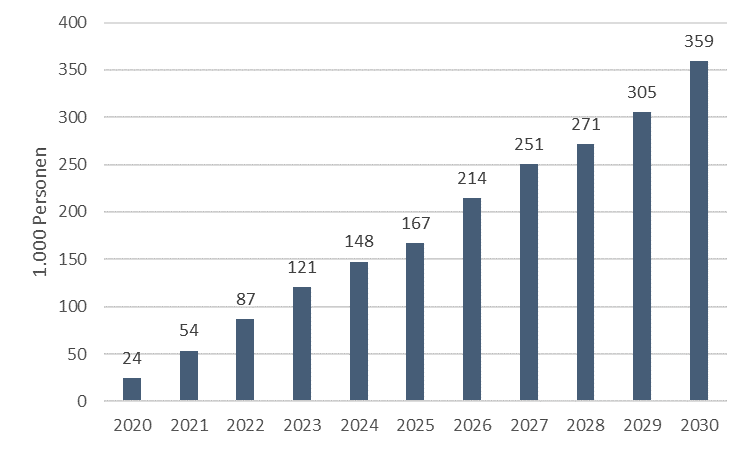The scenarios “Towards a Climate Neutral Germany 2045” and “Towards a Climate Neutral Germany 2050” have shown which additional climate protection measures are necessary to achieve the required interim target of 65% greenhouse gas reduction by 2030.
Climate Neutrality Foundation commissioned the Institute of Economic Structures Research (GWS) to conduct a short study to determine the labor market effects of these climate protection measures with a view to the year 2030 (in German only).
The analysis shows that the path to a climate-neutral Germany has positive effects on economic growth and employment. By 2030, the price-adjusted gross domestic product will be 74 billion euros higher than expected in the baseline projection. Around 360,000 additional jobs will be created in 2030. The positive growth and employment effect is predominantly due to the additional investments required for the transformation – in particular in the expansion of renewable energies and the electricity grid.
Additional jobs are being created in the construction and transport-related sectors in particular. Only vehicle manufacturing is shedding jobs due to the change in drive systems for cars and trucks. However, the job losses in vehicle manufacturing can be more than offset by additional demand for the affected occupations in other sectors of the economy, such as mechanical engineering.
The future challenges for labor market policy will not be to compensate for jobs that disappear, but rather to deal with the emerging bottlenecks in the labor market. The study also points out that, looking ahead to 2030, changes and challenges in the labor market will be determined more by other trends and general structural change than by climate policy measures.
